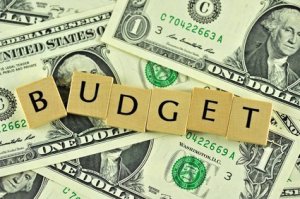 Creating a budget is the first step in taking control of your finances. Sticking to your budget is another challenge altogether.
Creating a budget is the first step in taking control of your finances. Sticking to your budget is another challenge altogether.
Even when you believe you have factored in every cost you may encounter by week, by month or by year, somehow you end up needing more money than you allocated – right? If this sounds like you, you are likely encountering a budget killer (or several). Below are some of the most common costs that can cause you to veer off your budgeting course.
1. Account Maintenance Fees: Some big bank accounts and credit cards tack on fees if you don’t maintain your account or meet specific requirements. Some charge you extra if you don’t maintain a certain balance, if you write too many checks, or if you don’t make enough transactions. These can add up quickly. Make sure when choosing an account or credit card, you read the specifics of your account agreement carefully. Look into which checking accounts and credit cards offer services that fit your lifestyle.
Be sure to check out the variety of flexible Checking Account options that we offer here at First Financial. Plus, if you’re on the hunt for a great new maintenance-free credit card with rewards, click here to learn more about our low-rate Visa Platinum Credit Card and apply online.
2. Subscriptions: While seemingly low monthly fees can be attractive, subscription magazines and online services (think Netflix, Hulu, etc.) add up. These costs are hurting your budget if you are not using the services or if you could find them elsewhere online for free. Eventually, these just become another add-on to your monthly payments so it’s a good idea every so often to re-evaluate whether yours are worth keeping.
3. Credit Card Interest: Credit cards have several attractive features: allowing you to buy now and pay later, providing cash back, and helping you earn points toward a new car, vacation or night out. Paying installments on your purchases over time may appear to be a great way to buy all your monthly and superfluous purchases. However, high interest rates add up over time if you carry a balance and you can find yourself deep in debt before you know it. You may think you are paying off your purchase when all you are doing is treading water by paying off the interest. To avoid this, it’s important to know the interest rates of your credit cards, pay off your balance in full every month, and save before you purchase. Carrying a lot of debt can have longer-term implications on your credit scores too.
Did you know that our Visa Platinum Credit Card has one of the lowest interest rates around and offers rewards?* It’s a good idea to check the APR of some of your current credit cards to see if it’s time to switch! Keep in mind, we also don’t have any balance transfer fees here at First Financial! You can apply for a balance transfer by stopping into any branch or calling 732.312.1500, Option 4.*
4. Excess Phone, Cable & Utility Bills: Many households are paying hundreds of dollars for TV, Internet, cell phone, and utility expenses each month. No matter how comfortable these tools make us, they are taking up valuable space in our budgets. Look through your bills carefully and try to scale back from services you aren’t using or do not need to use, from running the air-conditioning while you are at work to paying for a DVR on a second TV you never even watch. Also, be sure you are not paying for a level of service you don’t need. If these alterations don’t bring a big enough impact on your budget, consider alternatives like prepaid phone services and switching cable providers.
5. Convenience Fees: Certain businesses tack on “convenience fees” when you utilize their goods or services as a way to make up any added expenses that can incur during your transaction. Be wary of these types of fees before you make various transactions, to see if there is a less expensive way for you to do so.
Having an emergency fund can be a big help when you come in over budget. This money can save you from stress when you have fallen victim to these and other budget killers. It’s a good idea though to deal with the root issue instead of repeatedly ruining your budget and having to dip into your emergency fund. If you do have to use that money, it’s important to replace it and frequently evaluate your budget to match your changing lifestyle.
Article source courtesy of Fox Business.
*APR varies when you open your account based on your credit worthiness. This APR is for purchases, balance transfers, and cash advances and will vary with the market based on the Prime Rate. Subject to credit approval. Rates quoted assume excellent borrower credit history. Your actual APR may vary based on your state of residence, approved loan amount, applicable discounts and your credit history. No Annual Fee. Other fees that apply: Cash advance fee of 1% of advance ($5 minimum and $25 maximum), Late Payment Fee of up to $25, Foreign Transaction Fee of 1% plus foreign exchange rate of transaction amount, $5 Card Replacement Fee, and Returned Payment Fee of up to $25. A First Financial membership is required to obtain a VISA Platinum Card and is available to anyone who lives, works, worships, or attends school in Monmouth or Ocean Counties.
